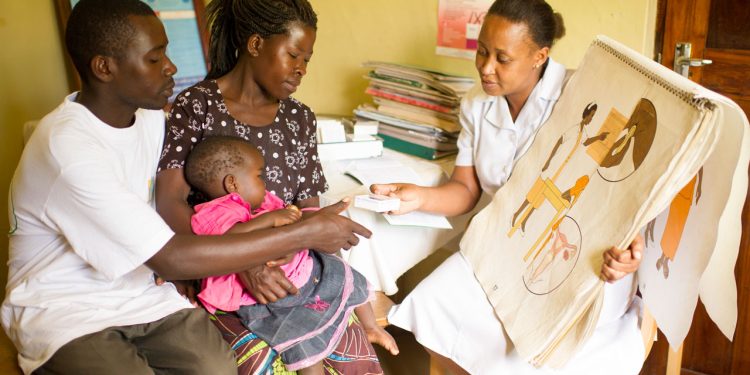Family Planning is the practice of controlling the number of children one intend to have and the intervals between their births, particularly using
contraception or voluntary sterilization.
The Principal Midwifery Officer at the Tema Polyclinic Mrs. Nsoah Augustina has stipulated that Family planning makes marriages enjoyable if it is correctly practiced because it helps couples to determine the number of children they intend to have and spacing between them to prevent unwanted pregnancies.
Speaking on Plan B Fm’s family, relationship, and lifestyle show dubbed ‘Nyansapo Fie’ hosted by Dr. Michael Asenso on the topic “Changes that occur with the usage of Family Planning Commodities”
Mrs. Nsoah Augustina said the changes are based on individual differences, which includes menstrual changes (heavier bleeding, amenorrhea or oligomenorrhea), changes in weight, headaches, dizziness, nausea, mood swings, breast tenderness, and irregular bleeding.
She also outlines some methods of family planning that could help prevent unwanted pregnancies, birth control, and spacing and these include,
IUD (Non-hormonal/Hormonal)
A small t-shaped device is placed inside of the uterus by a health care provider to prevent pregnancy 99% of the time. Less than 1 out of 100 women will get pregnant each year if they use an IUD. Available in non-hormonal (copper) and hormonal (plastic) options, the IUD is one of the most effective forms of birth control and can last anywhere between 3 to 10 years depending on which type you choose. Non-hormonal and hormonal IUDs work to prevent sperm from fertilizing an egg.
An implant (Hormonal) is a small rod placed under the skin in the upper arm by a healthcare provider to prevent pregnancy. The implant, which lasts for 3 years, releases the hormone progestin to stop the ovaries from releasing eggs, and it thickens cervical mucus, so it is difficult for sperm to enter the
Again is The Shot (Hormonal) An injection given by a medical professional of the hormone progestin in the arm or hip that lasts three months and prevents pregnancy if they always use the shot as directed. The shot, also known as Depo-Provera, stops the ovaries from releasing eggs and thickens the cervical mucus, so it is difficult for sperm to enter the uterus.
The Vaginal Ring (Hormonal) is also the flexible ring that is inserted into the vagina each month for three weeks at a time to prevent pregnancy, The vaginal ring releases hormones that stop the ovaries from releasing eggs and thickens cervical mucus, so it difficult for sperm to enter the uterus.
The Pill (Hormonal) is a pill that should be taken at the same time every day for maximum effectiveness, which is often used to reduce cramping and bleeding during periods and prevents pregnancy. The pill releases hormones (progestin-only or a combination of hormones) to stop the ovaries from releasing eggs and thickens cervical mucus, so it is difficult for sperm to enter the uterus.
Condoms (Non-hormonal) Available in latex or polyurethane, condoms, which prevent pregnancy, condoms are placed over an erect penis to stop sperm from entering the vagina during ejaculation, and Insertive/female condoms are inserted into the vagina and prevent pregnancy and condoms also protect against STDs.
And lastly, the Withdrawal/Pull-out Method (Non-hormonal) prevents pregnancy by pulling the penis out of the vagina before ejaculation. women whose partners use withdrawal will become pregnant each year, even if used correctly. Remember, there is always a chance of pregnancy if sperm is introduced to the vagina, She added.










Discussion about this post